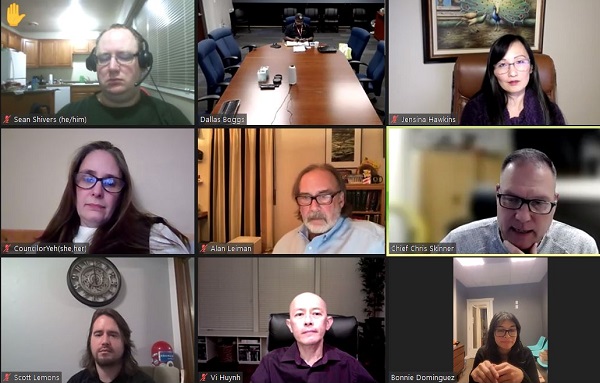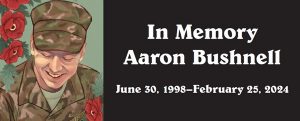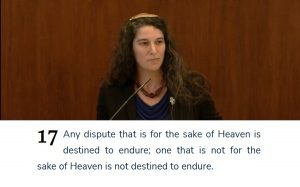Chief Skinner praises EPD officers, department record on ‘duty to intervene’
9 min read
Eugene’s police chief praises work by his officers, including their extraordinary composure under fire. Here’s 10 minutes from the Police Commission Feb. 9.
[00:00:10] Eugene Police Chief Chris Skinner: There’s been some really good police work happening since I’ve talked to you last.
[00:00:13] We had a double homicide up on 18th and we were able to make arrests in that case. We had some cooperative victims and some witnesses. And we had a predicate incident with an individual with these suspects, so we kind of knew where we needed to go to look, and things came together and those individuals were taken into custody within 48 hours of that double homicide up on 18th.
[00:00:36] Between then and now, we’ve had a pretty significant incident out on Fox Hollow Road where we had police officers under fire. It started with the ramming of a patrol car and then resulted in an individual firing out of the back of his pickup truck at an officer that was pursuing.
[00:00:52] They—two—a man and a woman—fled to a home out on Fox Hollow that was not their home. They went in at gunpoint and forced the owners out. And then barricaded themselves and had access to all sorts of weapons in that house and that they had brought in with them. And then shots were fired at officers as we responded, and from high-powered rifles. There were some reports that there was as many as up to 100 shots fired at our officers.
[00:01:17] So we’re just lucky that we didn’t get an officer killed that day or shot. We eventually—we tried to negotiate. They continued to barricade. We flew the drone into the house to be able to see what was happening. We saw that they were barricading and fortifying themselves in the house.
[00:01:31] So the decision was made then to use some gas munitions and incapacitants. And the minute we put those into the house, the male subject that was doing the majority of the shooting immediately came out on the balcony and surrendered. And then called out to officers to let us know that his female partner was deceased in the house.
[00:01:49] We immediately pulled together a reaction team, went into the house, found that she had ODed on a substance and looked to be lifeless. Officers immediately administered Narcan and stabilized her, brought paramedics in, and were able to get her to the hospital. I do not know her status as of now. She was touch-and-go and she was getting better and then got worse and got better.
[00:02:09] So I’m not quite sure where that is, but I think it’s just an illustration of how dangerous this job can be. This all started with a traffic stop. And one of our younger officers, who just showed such great composure in this—His car was rammed, he was pursuing this individual, he was being shot at out of the back window, he’s driving a car at 75 miles an hour talking on the radio, operating the MDT (mobile device terminal), trying to communicate with other officers. And all a while he, on his bodycam, we can see that he takes two seconds to have Siri call home and leaves a message for his significant other that he loves her in case something goes awry and then gets right back in it and gets really back engaged.
[00:02:52] I think it’s just an illustration of just the composure officers have under fire and their commitment to public safety and the fact that these officers actually have family members at home that hope that they come home safe. So, some really good work done there. Really proud of the department there.
[00:03:10] Lastly Chair (Dallas) Boggs mentioned the statement that I made about Tyre Nichols. I’ve had a lot of conversations in public about this. My most recent one was with Black Student Union Group at North Eugene High School. I had a whole half of a gym filled up with students and staff that wanted to listen to what I had to say and just to offer some thoughts about that.
[00:03:30] And I’ll tell this group the same thing I told those that group. I’ve been in law enforcement for 33 years and I’ve seen just about everything that you could see, both as a police officer and as an administrator. And there’s nothing that I saw on that video that I could even remotely create a story that would help justify what I saw that in that video.
[00:03:48] And so I’m very quick to say that and say that there’s absolutely no reason that I could offer to even give any context to that video, other than what you saw, which looked to me to be just an absolute beatdown and punishment of a young Black man on the streets of Memphis.
[00:04:03] And we recognize that when those things happen across the nation, that they transcend time and distance, land here in Eugene, and make everyone hopeful and nervous about whether that could happen in Eugene. And so that’s why my statement goes out early. That’s why I’m open to talking to people about that.
[00:04:20] And that’s why we are so robustly reporting our use of force and have an attention to detail around our training. And if you might remember in the last long (Oregon legislative) session, we have some pieces of legislation that require the duty to intervene. And that’s what you saw.
[00:04:35] There was a lack of intervention by those officers that I have to believe, at least somebody in that group recognized that as being excessive very, very early and chose not to step in and stop it. And our officers are trained, every year, trained on what the expectation is, on the duty to intervene if they see something start to become excessive or criminal or against our policy.
[00:04:55] In many instances over the years, over half of the total Internal Affairs investigations we do are internally generated by people that are actually working alongside other people. We’re doing a better job than some on policing our own and recognize that we have to stay vigilant around that.
[00:05:14] John Q: Chief Skinner said the department is down 26 officers.
[00:05:18] Eugene Police Chief Chris Skinner: The state of the EPD force right now is: We’re down 26 police officers. We—probably all positions, both professional, staff, and sworn—we’re probably closer to the 35-to-40 range.
[00:05:31] And so we will continue to try and emphasize our police officer hiring just because they’re the most difficult and the hardest to train and longest to train. And (Acting In Charge Sgt.) Kara (Williams) and her team are doing a fantastic job.
[00:05:43] This group of five that’s coming on, on Monday, is just a really, really good group. Three men, two women. One of them is a cadet that’s been with us for 16 years. She’s going to be a great police officer. And then some people from out-of-state as well. So, excited about that and looking forward to getting those folks on.
[00:06:01] The other thing that’s happening right now is we are getting ready to interview for our sergeant’s process. That happens next Wednesday, Tuesday and Wednesday. And we have 23 candidates that want to be a sergeant in this organization. There’s never been a moment in time that we’ve had that many candidates that have wanted to be in a position of leadership, so we’re really excited about that.
[00:06:22] But it’s a heavy lift. I’ve invited Miles Pendleton from NAACP to sit on those panel interviews along with a variety of other people. And so we’re excited to have Miles there for two days. And I think he’s underestimating the commitment, when you think about sitting there for two full days through these interviews.
[00:06:38] But we’re excited that he wants to be a part of that and help us make a good selection about our future leaders.
[00:06:43] John Q: He was later asked about the panel by Commissioner Scott Lemons.
[00:06:46] Police Commissioner Scott Lemons: You said there was a representative of the NAACP and I’m really appreciate that, I was just wondering if there’s any other community groups that you’ve reached out to, to be on this panel as well?
[00:06:57] Eugene Police Chief Chris Skinner: Thanks for that question… Some of the last police officer hiring panels, we do have external people on that from a variety of different groups.
[00:07:04] We try to keep the panel reasonably sized, so, you can imagine, if you came in as a candidate and you sit down and try and have a panel discussion with, you know, 12 different people, it’s difficult to get through that many questions and just trying to manage that many schedules. So we have just a panel of (I think) five or six.
[00:07:21] So we have a variety of internal people from all over the agencies, so it’s not just police officers. We have a dispatcher supervisor in there. We have another professional staff person in there. We have a representative from the association, which is important because those are the people this person’s going to be leading. And then we like to have at least one community member on there. And in this case it’s Miles Pendleton from NAACP…
[00:07:44] But in every process as we’ve moved forward over the last couple of years…we are committed to having external people on the panel.
[00:07:51] John Q: Much of the chief’s time these days involves the new budget.
[00:07:56] Eugene Police Chief Chris Skinner: This next year’s budget is a two-year budget for the first time… We’re expecting some tough decisions coming out of that budget cycle and the budget committee that will suggest that we again have to think about and be mindful about hiring and how quickly we hire people, in an attempt to try and right-size what is a general fund that has really struggled through the pandemic, and actually before that, with some loss of revenue.
[00:08:21] John Q: He was asked to comment on staff retention.
[00:08:24] Police Commissioner Vi Huynh: So Chief, I’m wondering what were some of the reasons some of these officers are leaving our department. I know retention is always a challenge in any department, right?
[00:08:37] Eugene Police Chief Chris Skinner: We don’t have people leaving the organization as a result of a toxic culture or poor leadership. But every resignation I get is somebody that we are giving a retirement badge to and holding a ceremony for because they’ve put in 25+ years of service, and so we want to honor them with respect to that.
[00:08:56] The retention piece is always front of mind for me. We try to do a lot of things and we try to do them very kind of internally-focused for retention. We have a wellness budget, so we make sure we host wellness activities for our officers and professional staff and their families…
[00:09:11] Just the other day I walked by the Records Division and one of our records specialists is walking on the treadmill while she’s doing data entry… She said she was on mile 14. So there’s a lot of those little things that we’re doing to try and incentivize people to stay.
[00:09:28] Police Commission Vice Chair Bonnie Dominguez: How do we make a proposal or a motion that the public information officer come to one of our meetings? I appreciate the chief offering that as an option and I think it would be beneficial to all of us—as well as doing the homework, to read the policy—but also to get that directly from the horse’s mouth (although I’m not calling the PIO a horse, so don’t take that back, Chief).
[00:09:51] John Q: The 10-minute version of Chief Skinner at the Police Commission.







